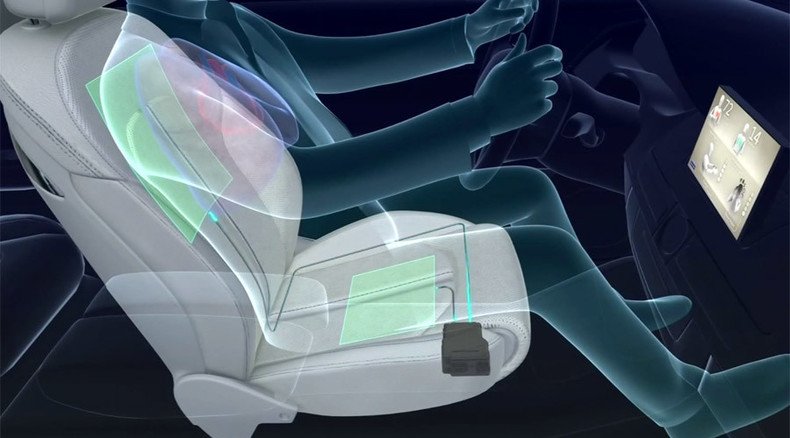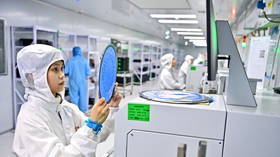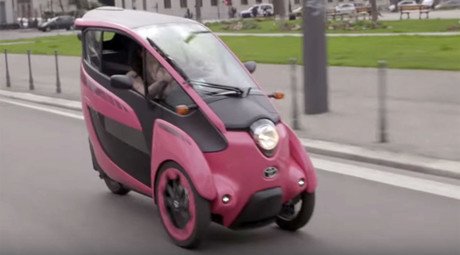Driveby therapy: Smart car seat monitors driver stress, energy levels

For commuters stuck in traffic, a driver's seat is far from comfortable. A French automotive company could change that with an intelligent car seat that uses a biometric sensing system, offering physical and mental therapy in case of stress or exhaustion.
The "Active Wellness" car seat, made by Faurecia, is designed to track driver health using non-contact sensors in order to offer a more comfortable driving experience.
"The Active Wellness seat is Faurecia's vision on the next level of personalized comfort," said Olaf Biedermann, director of innovation at Faurecia. "What we basically do is to monitor respiration rate and heart rate in the seat, and we derive stress and energy level from that. Then, having this kind of wellness being information, we now can offer a closed-loop comfort system; so in case you are stressed you get a relaxation massage, in case you have low energy levels you get a very energizing massage."
The Active Wellness seat has been developed with the help of the Spine Research Institute at Ohio State University and NASA engineers, tapped to improve ways to collect a driver's vital signs.
"We have a unique technology integrated; it is piezoelectric sensors integrated in the seat cushion. Very simple and robust, and our way to measure the information," Biedermann told Reuters at the Frankfurt Motor Show.
READ MORE: Ford seeks to monitor drivers for heart attacks behind wheel
The result is real-time monitoring using sensors that work in tandem with a signal processor that the company says works while the vehicle is moving.
"I think the uniqueness in this context is that we use the sensor information and have developed - together with a partner - algorithms to analyze heart rate, respiration, stress and energy information of this information," Beidermann said.
How to make first dates more anxious? Stress-detecting cars: https://t.co/WqTtevEIaV
— John Cotter (@smalllights) September 23, 2015Measuring heart rhythms and breathing, the system discerns the occupant's stress and energy levels, offering the driver treatment options, such as a massage with warming and cooling options.
"Basically it's the stress level that we get from the respiration and heart rate information and the arousal or energy level. This is the two information. And we see critical trends of these two indicators; we decide to offer the person or the user either something for relaxation or something to energize," Beidermann said.
READ MORE: World's first self-driving truck takes to the highways in Nevada
The system will also analyze data provided by a wearable fitness device to understand what the occupant was doing before entering the car in order to suggest appropriate therapeutic options.
The Active Wellness car seat is expected to be available by 2020.
So-called smart technology in automobiles is a fast-growing sector today. For instance, the world’s largest car manufacturing company, Toyota, announced earlier this month an investment of $50 million in joint artificial intelligence research centers at the Massachusetts Institute of Technology and Stanford University.
READ MORE: 'World’s first' smart bike helmet alerts drivers and cyclists, aims to reduce accidents
The research will focus on social benefits such as how to make cars safer and how to enhance people’s quality of life through enhanced mobility and robotics, especially among the elderly.
Meanwhile, the US states of California, Nevada, Michigan, Florida, Virginia, as well as the District of Columbia, have offered their roads to self-driving cars. In July, Google reported the 14th accident involving its self-driving cars over six years and about 1.9 million miles of testing. In 11 of the 14 accidents, Google said its car had been rear-ended.
Google said that its cars have not caused any of the collisions, though in 2011 an employee who took a car to run an errand rear-ended another vehicle while the Google car was out of self-driving mode.














